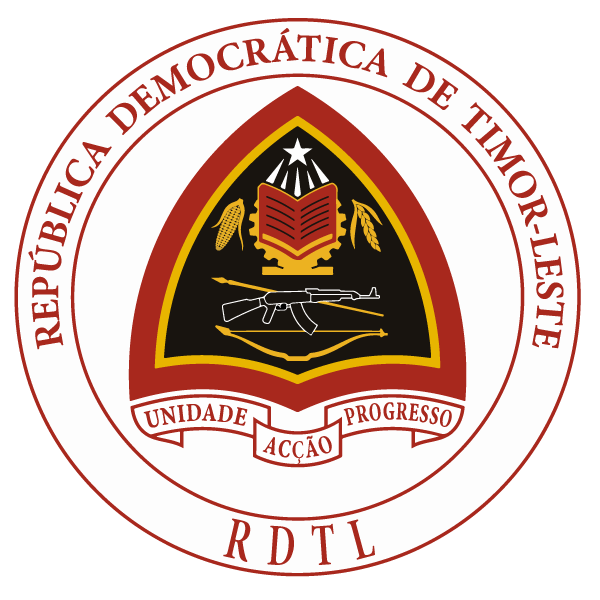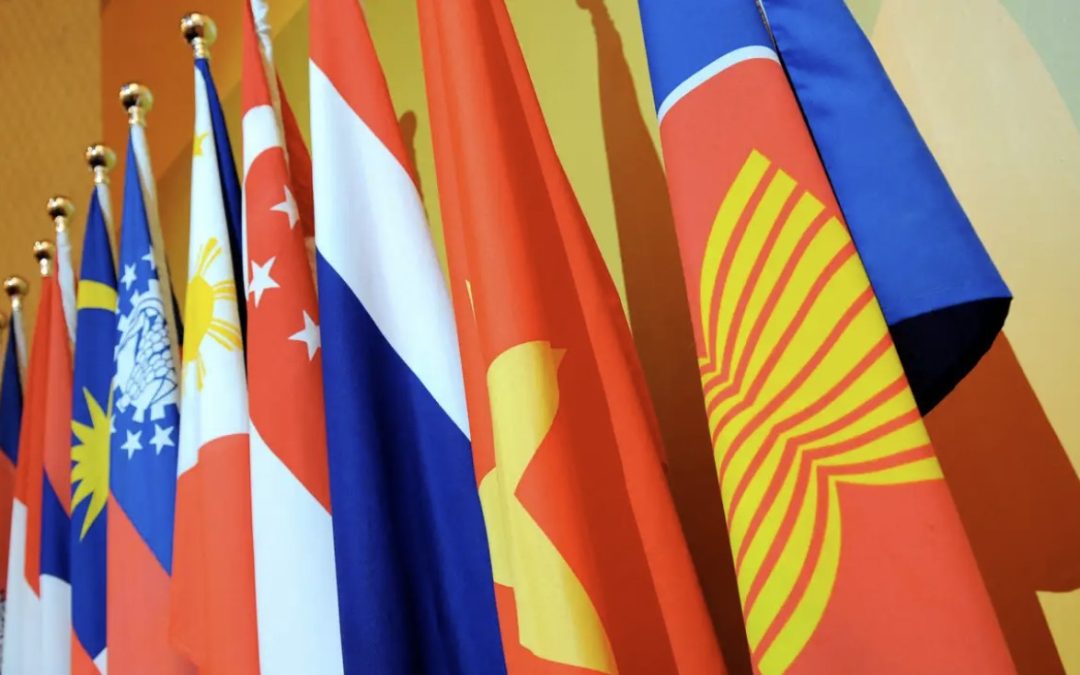FILE PHOTO: The Association of Southeast Asian Nations (ASEAN) flag (R) leads the flags of the 10-member countries during the ASEAN Regional Forum meeting in Singapore July 23, 2008. The ASEAN members are Brunei, Cambodia, Indonesia, Laos, Malaysia, Myanmar, Philippines, Singapore, Thailand and Vietnam. REUTERS/Romeo Gacad/Pool/File PhotoSource: REUTERS
In October, the Association of Southeast Asian Nations (ASEAN) will officially welcome its 11th member: Timor-Leste, the small but strategically placed state that gained independence from Indonesia in 2002 and is Asia’s youngest democracy.
The nation of 1.4 million will formally join during the ASEAN’s 47th summit, capping a 14-year journey since it first applied for membership and three years after it was granted observer status.
Why this matters
Any new accession alone can already be seen as a milestone for ASEAN, which has not admitted a new member since Cambodia in 1999. At a time of heightened geopolitical tension, Timor-Leste’s entry signals the bloc’s continued commitment to regional inclusivity.
Its membership also extends ASEAN’s reach, giving the bloc oversight from Myanmar in the west to the Timor Sea in the east. Some say the move could strengthen ASEAN’s position as a counterweight to rising coalitions such as BRICS+ and the Shanghai Cooperation Organization.
For Timor-Leste, the benefits are substantial. Joining ASEAN could help attract foreign investment and diversify an economy still reliant on petroleum revenue, which accounts for roughly 80% of public spending.
The country also stands to gain from ASEAN’s free-trade frameworks, including the ASEAN Free Trade Area (AFTA) and the Regional Comprehensive Economic Partnership (RCEP). Lower tariffs and improved access to higher-quality goods could significantly benefit the import-dependent nation.
Country profile
Timor-Leste is Asia’s youngest country, winning independence from Indonesia in 2002 after a protracted and often violent struggle. Its population is predominantly Catholic, with Tetum and Portuguese as official languages.
The economy depends heavily on petroleum revenues. While a sovereign wealth fund has helped stabilize finances, the country remains vulnerable to oil price swings and the accelerating global shift to renewable energy.
Political stability has improved, but frequent coalition changes and institutional weaknesses have slowed development. Poverty and youth unemployment remain among the highest in Southeast Asia.
Geographically, Timor-Leste occupies the eastern half of Timor island, sharing a land border with Indonesia and is proximate to Australia. Its position gives it strategic significance along key shipping lanes at the edge of the Timor Sea as a bridge between Asia and the Pacific.
The country is led by President José Ramos-Horta, now serving a second term after first holding the office from 2007 to 2012, the period when Timor-Leste formally applied for ASEAN membership. A Nobel Peace Prize laureate, Ramos-Horta is widely respected for his work toward a peaceful resolution of the conflict in the country.
What to expect
ASEAN leaders are expected to hold a ceremonial flag-raising during the October summit to formally induct Timor-Leste as a full member.
In the short term, observers expect gradual integration as Timor-Leste works to align its regulations, trade systems, and border controls with ASEAN standards. The accession also offers ASEAN a chance to demonstrate its unity at a moment of growing geopolitical competition in the Indo-Pacific.
Border management is likely to be one of the most sensitive issues, given Timor-Leste’s historical and ongoing disputes with Indonesia, an ASEAN member. Similar border tensions have tested intra-bloc relations before, most recently between Thailand and Cambodia.
Ramos-Horta has pledged that Timor-Leste will contribute to ASEAN’s stability, not its tensions.
“Our absolute priority is for Timor-Leste to stay peaceful, with law and order, public security, and stability in government,” he told Channel News Asia. “We should not bring to ASEAN an additional burden, additional headache.”
Looking ahead, Ramos-Horta has said he hopes Timor-Leste will be ready to host an ASEAN summit by 2029. He has also floated a more ambitious vision: a demilitarised region where disputes are resolved through diplomacy rather than conflict.
“The best way, in my view — maybe it’s romantic, maybe it’s naive — would be to demilitarise the whole area,” he said. “Better to declare it a sea of peace and human fraternity, and then work to celebrate that sea as a sea of peace.”
For many Timorese, accession is as much a symbolic milestone as a practical one — a sign that their two-decade-old nation is recognized as a full partner in Southeast Asia’s future.
This story is written and edited by the Global South World team, you can contact us here.
![]()

